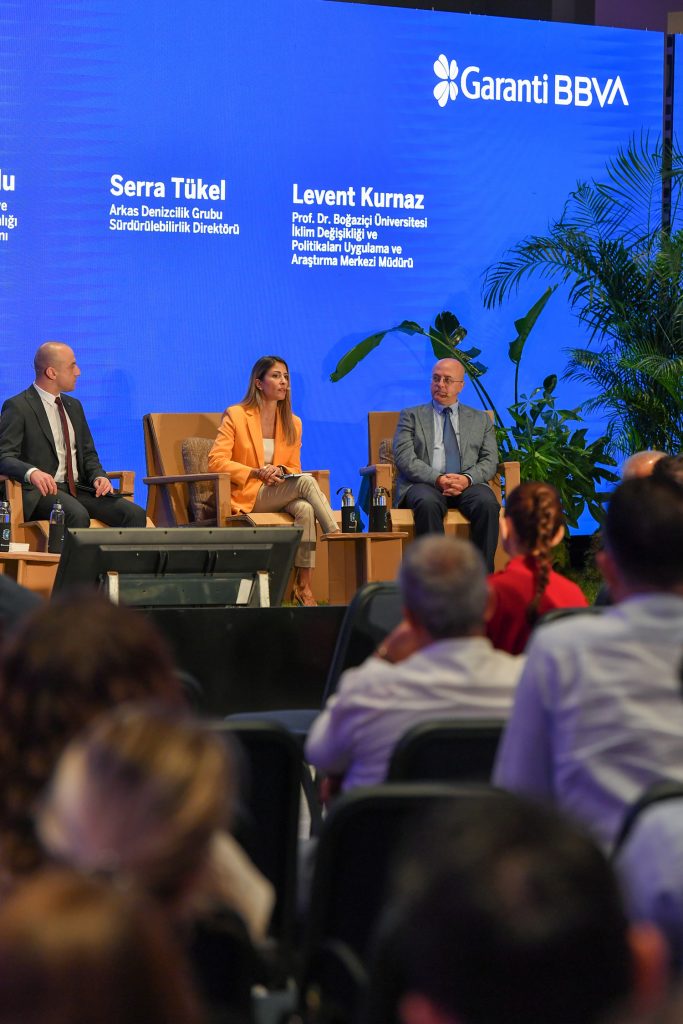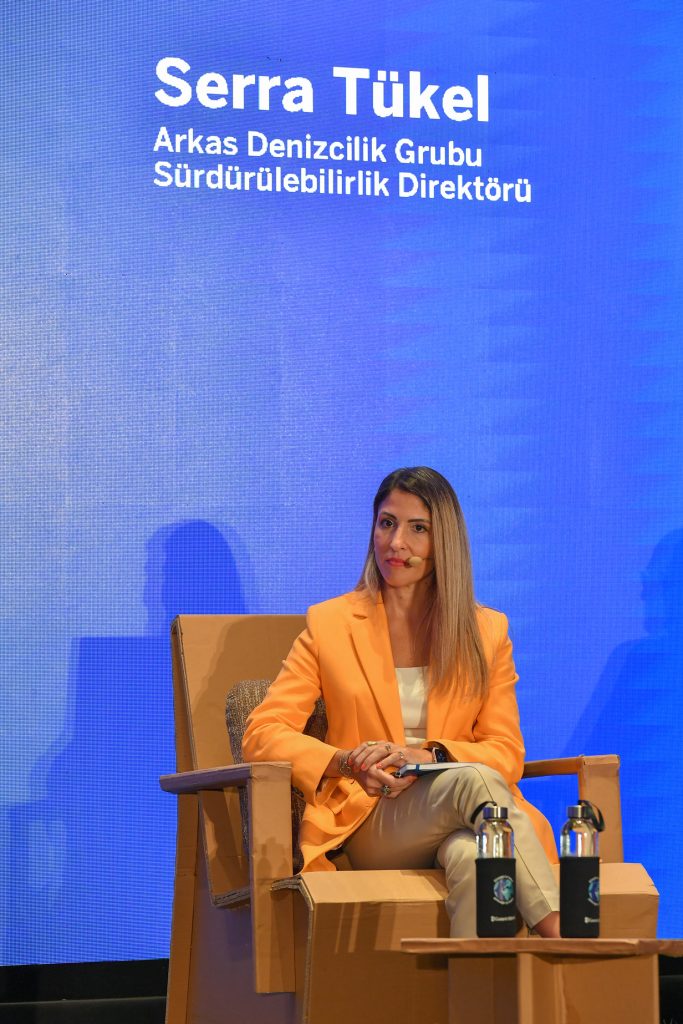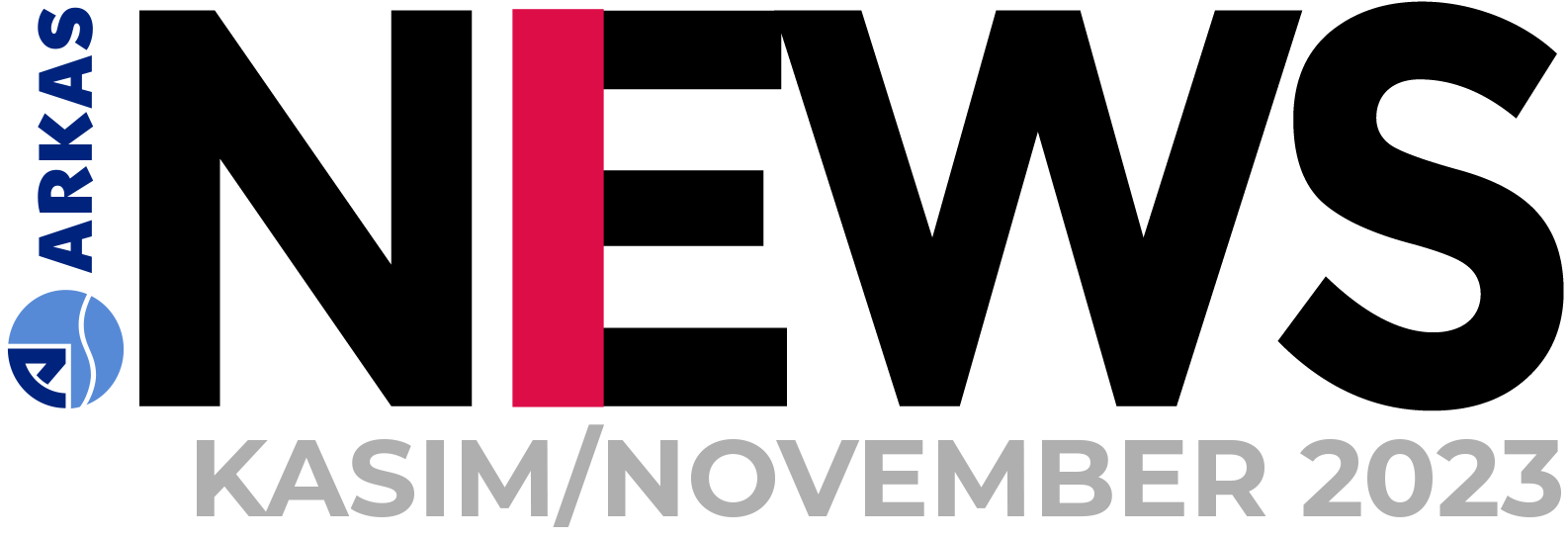Garanti BBVA has launched its third “Sustainable Future in Exports” event in Izmir, Turkey, with the aim of supporting compliance with the European Green Deal and fostering sustainable investments. One of the key speakers at the event was Serra Tükel, Arkas Maritime Group Sustainability Director, who discussed the imperative for Türkiye’s green transformation from a leadership perspective. Tükel highlighted the company’s continuous efforts to reduce emissions since 2013 and underscored the challenges they face in sourcing green fuels within their geographical region. She emphasized that a core part of their strategy involves making enhancements in land and port connections to innovate solutions within green transportation corridors.
Providing insights into Arkas’ sustainability journey, Serra Tükel mentioned that following the announcement of the EU Green Deal in 2019, Türkiye’s Ministry of Trade released an Action Plan in 2021. Tükel also pointed out the establishment of the EU Green Deal Committee in December 2021. She stressed the importance of addressing emissions both at sea and on land, acknowledging that 90% of global goods are transported by sea, contributing to only 3% of total emissions, whereas the majority of emissions in transportation come from land-based vehicles. Tükel stated that their main strategy is to collaborate on projects to improve land-to-port connections, reduce emissions, and create innovative solutions in long-term net-zero green transportation corridors.
Green fuel supply remains a significant challenge in maritime transportation, according to Tükel. She explained that these fuels are not readily available in their region, highlighting the need for foresight when investing in ships. Tükel continued, saying, “When you talk about ship investments, you need to foresee what technology will be available 25 years from now. While waiting for advancements in fuel technologies and supply, we focused on making infrastructure improvements internally.” She also noted that during the pandemic, efficiency at ports decreased. Tükel expressed concerns, stating, “Before the pandemic, we had improved our emissions by up to 26%, but unfortunately, this figure has now dropped to the 20s. We utilize all available programs, route optimizations, anti-pollution coatings, and almost all existing technologies in the market operationally and technically in our ships. We do not anticipate any of our ships dropping to Class E by the end of 2023 with these improvements. However, the most critical criterion is the introduction of green fuels and the establishment of rail connections to ports.”


Tükel also highlighted the pressure on supply chain and transportation companies. She noted, “With the global increase in container capacity, freight rates have started to move downwards. Transitioning to green fuel, adopting more environmentally friendly transportation, and switching to higher-cost fuel are all on the table. This imposes a significant financial burden on transportation companies. The question remains: how much of this difference are the shippers willing to pay, and what additional burdens will this place on production companies? As logistics costs increase, we could face serious problems. Production must continue, and exporters must be able to conduct business.”
The panel, titled “Türkiye’s Necessity for Green Transformation from the Perspective of Leaders,” featured other speakers, including Recep Baştuğ, the CEO of Garanti BBVA, Ender Yorgancılar, the Chairman of the Aegean Region Chamber of Industry and Deputy Chairman of TOBB, Okan Uğurlu, a Climate Change Specialist from the Ministry of Environment, Urbanization, and Climate Change, and Levent Kurnaz, the Director of the Boğaziçi University Center for Climate Change and Policy Studies. The “Sustainable Future in Exports” events had previously been held in Istanbul and Gaziantep.


